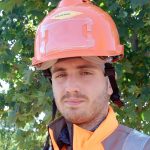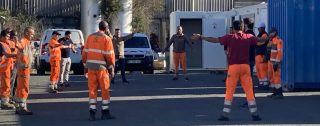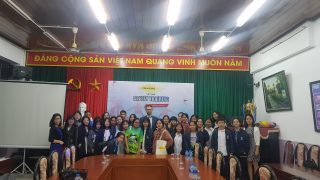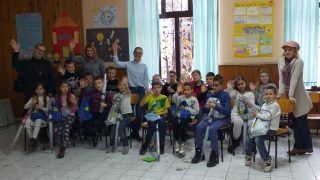Share on:
Back pain is the leading cause of sick leaves in France. These problems are particularly present in the Public Works / Construction sector, where despite the mechanisation of many activities, the activities are still physical.
Our employees are our most precious resource and we want them to work in optimal conditions to preserve their safety and health. With this in mind, Jérémy GAUTHIER, Quality Health Safety Environment Manager, located at the French agency of Mettray, tells us about his initiative to implement a “Physical Preparation in Autonomy” programme in partnership with the Alter Ego company. Started in February 2020, this programme resumed in June (post-lockdown in France) on the sleepers’ replacement site in the city of Bléré, in France. At the moment, several sites have started the programme and more than forty employees are following this physical preparation.
 Jérémy GAUTHIER – QHSE Manager
Jérémy GAUTHIER – QHSE Manager
“Dear Jérémy, can you tell us about the Autonomous Physical Preparation programme that you have set up?
This is a daily program offered to our teams working on sites in order to preserve their physical integrity and reduce sick leaves related to sprains or low back pain. This program takes place in two stages: 15 minutes of warm-up in the morning before beginning work and 15 minutes of stretching at the end of the work period.
How did you come up with the idea of setting up this program?
“I do a lot of sport outside of work (editor’s note Jérémy is a National 3 level handball goalkeeper), which makes me quite familiar with injuries such as sprains or low back pain. These are injuries that are directly related to the environment in which our employees work, as well as to their physical condition. We work in a sector where trips and night work are quite frequent, with very physical field jobs such as track laying, which greatly increases the risk of injury. Having had quite a few cases of low back pain at the agency last year, it seemed possible (and therefore essential) to find an answer to this.
After studying several solutions, particularly at the Bouygues Group level, I was faced with a lack of adaptation and customisation of the exercises to the specific needs of our rail activity. But thanks to my network, I could find the Alter Ego company, with which we immediately matched because they share the same value of preserving physical integrity at work as we do. To meet the business constraints, their teams carried out necessary and important in-depth work to understand our processes and specificities. Thus, they could elaborate a training in line with the needs of our teams.
Initially, their approach was to observe our teams in action on the site for one day and one night to conduct a study and document their postures. Then each of them completed an anonymous and confidential health questionnaire, allowing them to share their physical health with confidence and allowing us to identify the main physical issues of the teams.This study enabled the set-up of a specific warm-up and stretching programme with sport coaches. This programme was first tested on one of our sites close to the city of Tours earlier in the year.
How were the team’s reactions when you first implemented the programme?
Despite an educational approach provided by the Alter Ego company, it was not easy to mobilise the teams at the start. The rail being quite a reserved industry world, it took a bit of getting used to for them. But now, the routine has set in and they are starting to feel the benefits of this programme.
How to maintain this activity on the smallest sites?
As part of this programme, I wanted to consider the economic dimension in order to be able to maintain the programme on all of our sites, whatever their size. Thus, I integrated a training system for our Colas Rail teams to ensure the continuity of the programme. Our team leaders, as well as voluntary track layers will thus be trained to be able to carry out the warm-up and stretching sessions. Currently, we have trained 5 employees.
After a few months, have you already seen results?
Since the implementation of this approach, we have not had any work stoppages on our sites. In addition, the fact of mobilising the teams on a warm-up programme before work begins allows them to increase their focus and concentration.
A final word?
Colas Rail is the first company in France in the rail sector to set up this initiative. After a faltering start, warm-ups and stretches are becoming a full part of the work routine on site for our employees. Timidity and reserve have given way to smiles and well-being on our sites. We must make our action sustainable by spreading this initiative on as many sites as possible and by training voluntary relays to make sure it lasts.
Finally, I would especially like to thank everyone who made this innovation possible: agency managers, works manager, site managers, team leaders and our track layers.”


